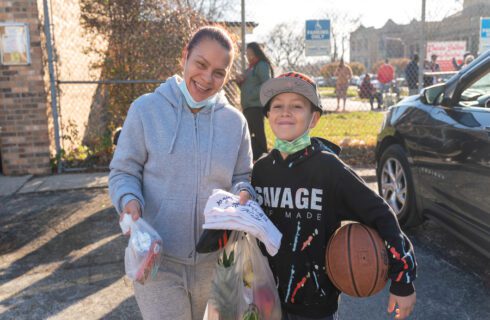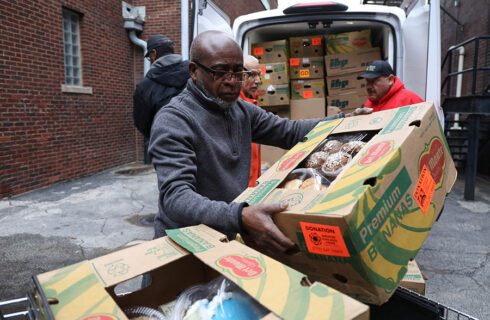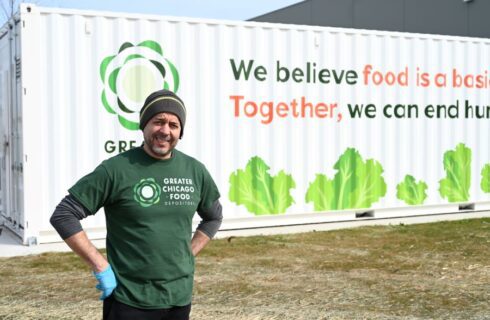When Tyler Hanyzewski left the Marines Corps, his transition back to civilian life proved difficult.
Readjusting from the highly structured, constantly on-the-go military lifestyle was a struggle, said the 35-year-old former Marine radio operator. After returning, he said he acted “reckless” for a while, particularly with alcohol, but learned staying busy helped him steer clear of trouble.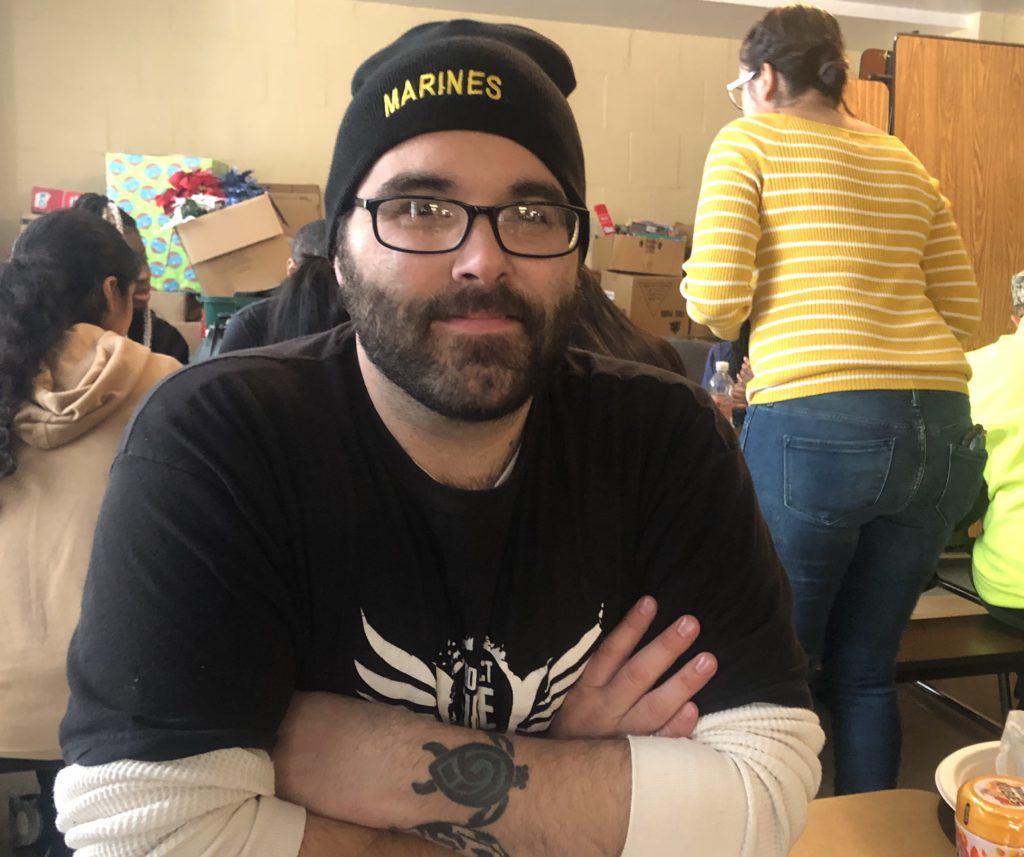
Marines Corps veteran Tyler Hanyzewski at the Chicago Standdown
More than 13,000 veterans in Cook County live below the poverty line and 18% of households who receive assistance through the Food Depository’s network of partner agencies include someone who served in the U.S. military.At the biannual Standdown events, local government and nonprofit organizations – including the Food Depository – join to offer veterans food, clothes and an array of other resources. Food Depository staff and volunteers served the nearly 600 attending veterans with a free meal, bags of groceries, and information about Supplemental Nutrition Assistance Program (SNAP) and Medicaid enrollment. In addition to preparing the lunch, representatives from Chicago’s Community Kitchens, the Food Depository’s culinary job training program, also recruited prospective students.
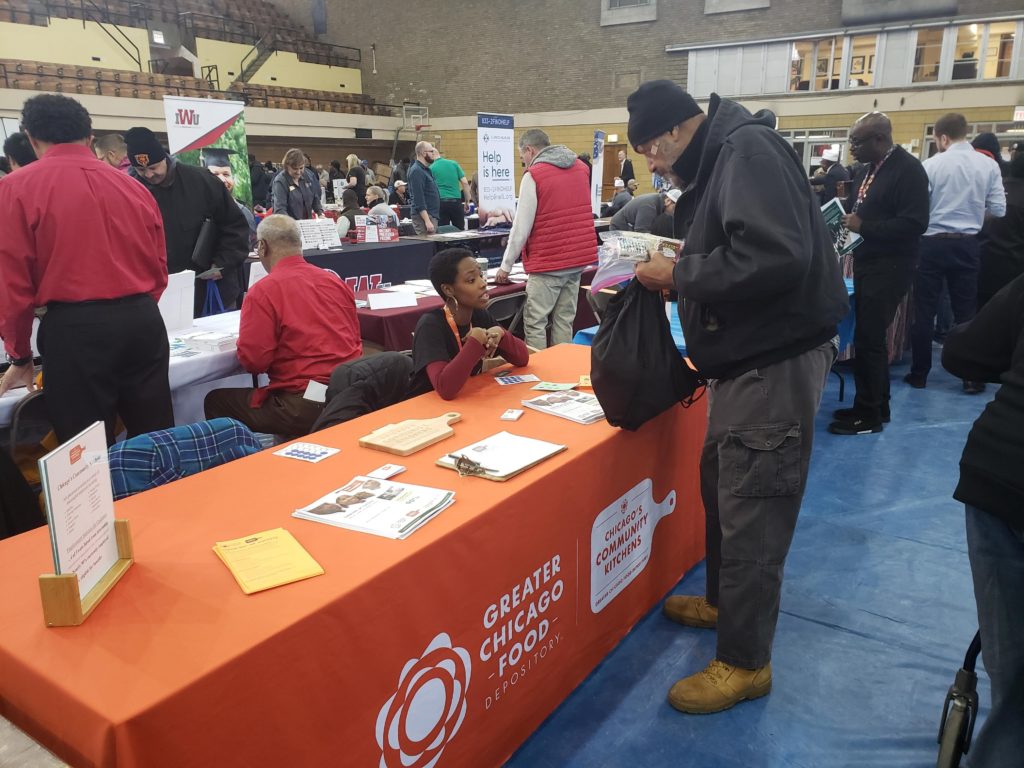
Representatives from Chicago's Community Kitchens, the Food Depository's job training program, spoke with veterans who attended the Chicago Standdown.
‘Everybody needs help sometimes’
On a national level, though the number of veterans experiencing homelessness has continued to decrease over the last several years, the need is still great. More than 37,000 veterans across the country are experiencing homelessness, according to the January 2019 “point-in-time” count administered annually by the U.S. Department of Housing and Urban Development. More than 13,000 veterans in Cook County live below the poverty line and 18% of households who receive assistance through the Food Depository’s network of partner agencies include someone who served in the U.S. military. The Food Depository also offers support to its veteran community members with food pantries at Jesse Brown VA Medical Center and the Edward Hines, Jr. VA Hospital. Neighborhood pantries – along with other community support services – have helped Army veteran Norman Hall “weather the storm” following a serious car accident. Hall, 62, served in the mid-1980s in several locations in the Middle East, including the Golan Heights and Egyptian-Libyan border. In the years since, Hall has been stably employed as a site safety manager that contracts with the Army Corps of Engineers. But the South Shore native’s troubles began two years ago when he was involved in a car accident, Hall said.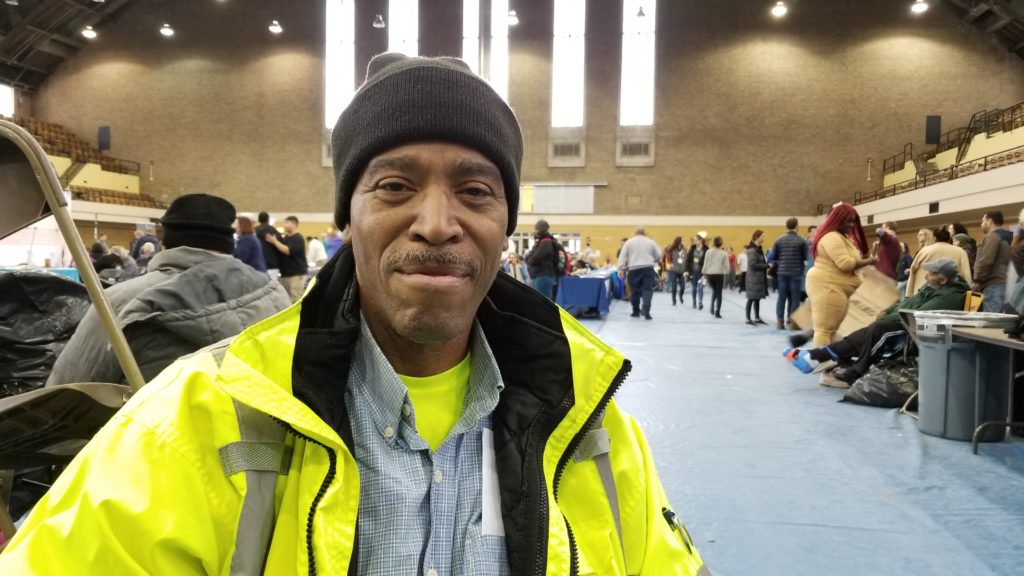
Army veteran Norman Hall at the Chicago Standdown. Hall turned to community support services, including his neighborhood food pantries, after a serious car accident left him unable to work.
Veteran camaraderie
Hattie Tyson was the first in her family to graduate from high school and the first to attend college. But when her mother died, she was devastated and began searching for a new direction. She signed up to join the U.S. Army in 1980. Tyson, 60, rose to the rank of sergeant and oversaw meal preparation as a food service specialist in the mess hall at Fort Campbell in Kentucky. But she has struggled with health conditions ever since, including depression, osteoarthritis, and fibromyalgia. She also suffered a knee injury and now has a rod in her left leg and requires a wheelchair. At the Chicago Standdown, Tyson said she felt a kinship with her fellow veterans. “Some of these guys have seen some things. I feel their pain and suffering,” Tyson said. “Some of us are getting help and some are not. I have compassion for that.”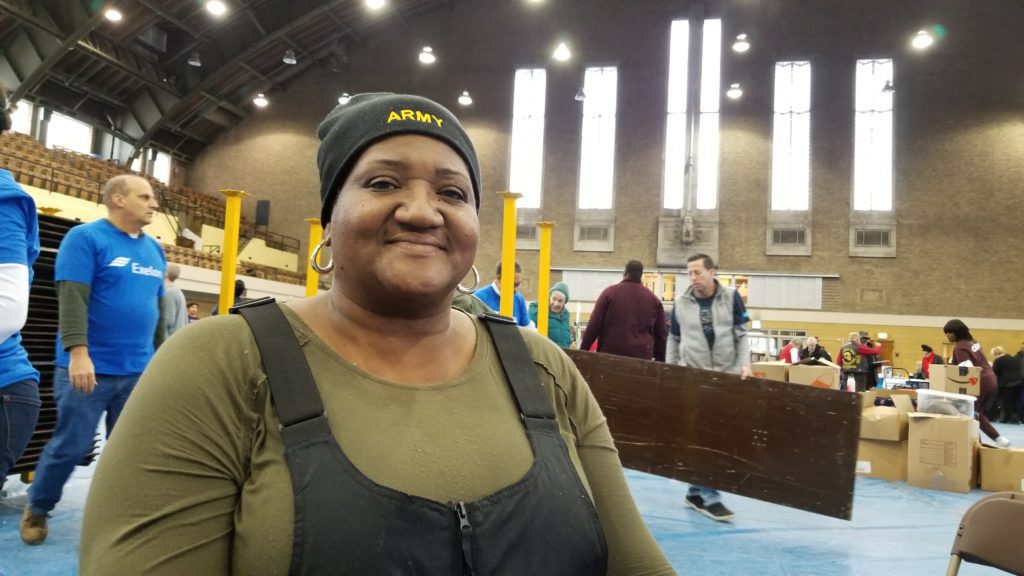
Army veteran Hattie Tyson at the Chicago Standdown
Share This Post

